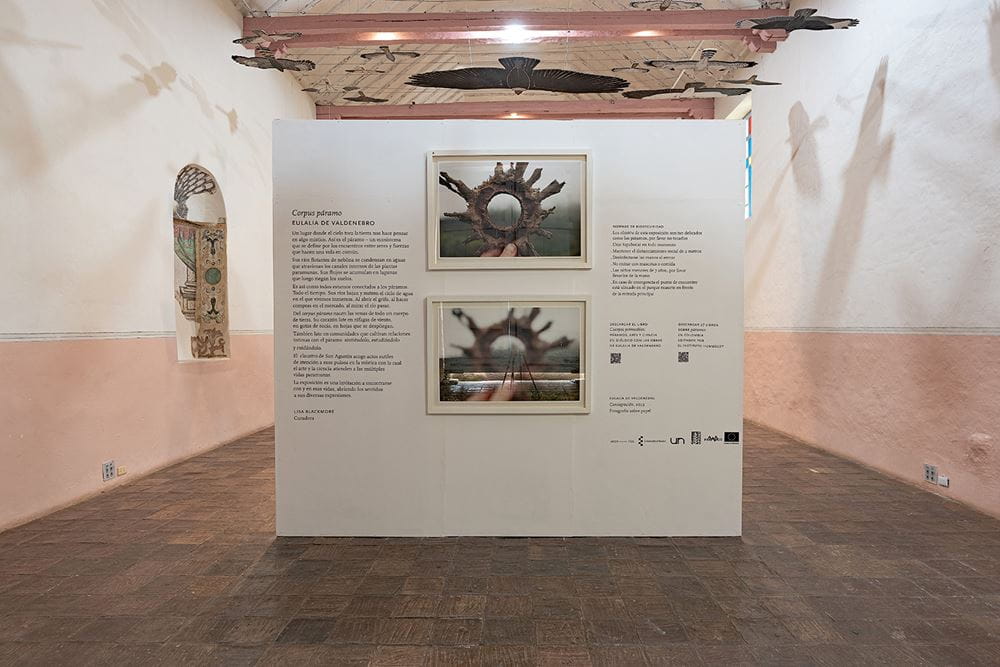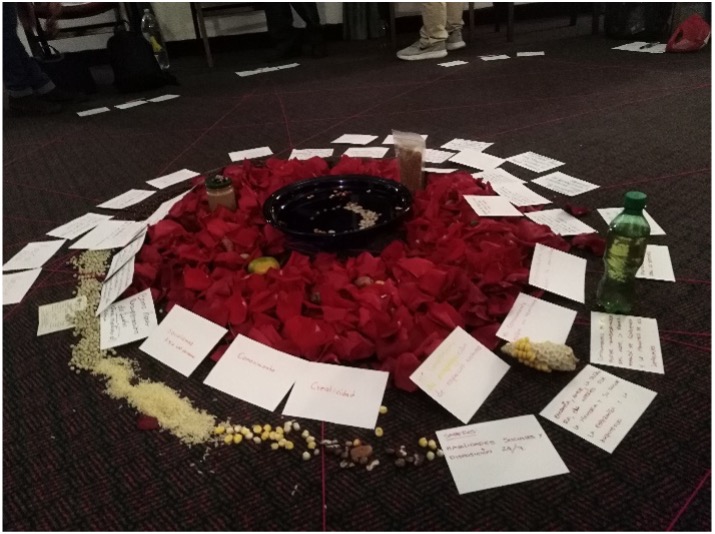Connecting communities to Colombia's Highland "Water Factories" through Art-Science collaborations

A strategic aquifer to sustain life on the land, Colombia holds 90% of the world’s páramos (highlands). The nation's entire water system relies on the health of these unique ecosystems --commonly dubbed fábricas de agua, or "water factories." The páramos capture the humidity of clouds from the Amazon and Pacific regions, channelling water into lakes, plants, and spongy wetlands that store it for release into downstream flows.
Their vital role in the water cycle makes holistic highland management policy a national priority. Since 2011, the Colombian Constitution has prohibited mining and agribusiness in the páramos. But their protection requires broad-based consensus in society, active participation of rural stakeholders in policy-making debates, and effective dissemination of scientific knowledge.
Knowledge silos, economic pressures and political tensions present challenges to academic institutions and governmental bodies that seek to engage communities in informed discussions and policy making to face socioenvironmental conflicts.
Climate change denialism teaches us that good science alone isn't enough to generate environmental awareness. From entre—ríos, the research network I convene, we've been working since 2019 to create arts-led projects that ignite public connections to the lives of bodies of water, linking different types of knowledge and placing a focus on the senses. One of our network artist-researchers, Eulalia de Valdenebro has spent the past decade developing intimate connections to highland ecosystems through botanical illustration and performance works.
In 2020, we forged an alliance with the Alexander von Humboldt Institute of Biological Resources and, Colombia's leading bio sciences research body that advises Colombia's Environment Ministry on governance policy, and their Proyecto Páramos, developed with European Union support.
The Instituto Humbolt works to “contribute to building a society with free access to information and knowledge [and] that values biodiversity," so we supported this by organising an art exhibition, botanical workshops, and an open access interdisciplinary publication. Our goal was to create common ground for knowledge exchange that would enmesh biodiversity knowledge, social justice, community resilience and sustainability.

From October-November 2021, we filled the Claustro San Agustín in Villa de Leyva with works by Eulalia and botanical samples from Instituto Humboldt's herbarium. The exhibition, Corpus páramo, marked the re-launch of the space and brought together more than 2300 visitors and was host to guided tours, a botanical workshop led by the artist, where participants gained knowledge on how to identify and draw highland plants like Bromeliaceae, Asteraceae y Rosaseae, and sustainable governance workshops, led by the Instituto Humboldt team.
To give this interdisciplinary space life after the exhibition ended, Eulalia and I edited the publication Permeable bodies: Highlands, Art and Xcience in Dialogue with Works by Eulalia De Valdenebro published open access as a print and digital publication by Instituto de Recursos Biológicos Alexander von Humboldt.
We selected authors from diverse fields, including art theory, social sciences, biology and law, to reflect the need for conversations between disciplines that don't always encounter each other — whether in universities or beyond in the wider world. Our book travelled with a bundle of publications produced by Instituto Humboldt as part of the Proyecto Páramos to 360 people, including University Libraries and Documentation Centres.
Now that we've sown this seed of art-science collaborations, we hope to grow it with future initiatives that continue to cultivate what feminist thinker Donna Haraway terms “response-ability” and cultures of solidarity to face the water stresses facing our global water bodies.
Image: Offering to the páramo featuring gifts and questions for the workshop created by participants of the workshop: Strengthening Capacity of Highland Communities (Taller de fortalecimiento de capacidades a comunidades de páramo), Villa de Leyva, Boyacá, 26-28 November 2021. Photo: Courtesy Instituto Humboldt.